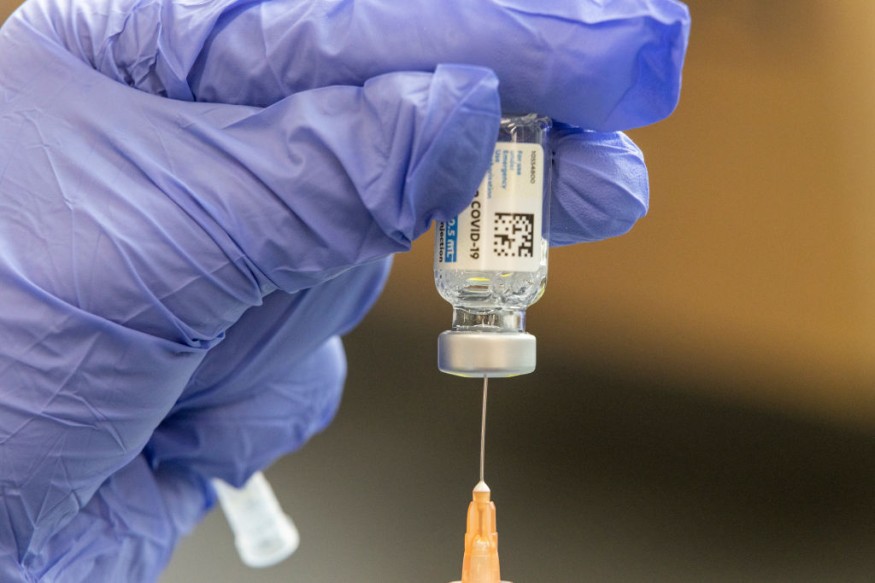The American Heart Association (AHA) asserts in a newly released guidance that the likelihood of developing cerebral venous sinus thrombosis after receiving a COVID-19 vaccine was extremely low, after reports linking those conditions to the Johnson & Johnson and AstraZeneca vaccines.
This guidance was released after the US Centers for Disease Control and Prevention (CDC) and the Food and Drug Administration lifted its "pause" order on the use of the Johnson & Johnson vaccine over the association to CVST and thrombosis-thrombocytopenia syndrome (TTS), which are blood clots with low platelet count. These conditions were likewise linked to patients in Canada and Europe who were administered the AstraZeneca vaccine.
In the guidance, "Diagnosis and management of cerebral venous sinus thrombosis with vaccine-induced immune thrombotic thrombocytopenia," investigators analyzed a database of 59 healthcare organizations and 81 million patients, 98 percent of whom were in the US.
In their assessment, the AHA concluded that COVID-19 patients are far more likely to develop CVST than those who received the vaccines.
Risk of CVST "Extremely Low"
The risk of CVST due to COVID-19 infection is "eight to 10 times higher" than the risk of CVST after receiving the vaccine, principal author Karen L. Fune, chair of the Department of Neurology at Warren Alpert Medical School, Brown University in Providence, Rhode Island, in a prepared AHA statement.
They reassure the public that such likelihood of developing CVST after receiving a COVID-19 vaccine was extremely low, added Fune, who encouraged all adults to take the FDA-approved vaccines.

The new guidance tackles the signs and symptoms of CVST and TTS, and the vaccine-induced immune thrombotic thrombocytopenia (VITT). It recommends the best treatment options for these conditions.
In the investigation, among the 514,000 patients who tested positive for COVID-19 from January 2020 to March 2021, 20 were diagnosed with CVST. Of the 490,000 adults who were administered the Moderna or Pfizer-BioNTech vaccines, no cases of thrombocytopenia were recorded.
Treatments Recommended for Suspected Blood Clots
CVST blood clots, investigators said are very rare adverse events, yet any patient who would experience such suspected clots must be screened immediately to find out if they had taken a COVID-19 vaccine recently and be treated with non-heparin anticoagulants.
Fune emphasized that no heparin products "in any dose" should be administered to those suspected of CVST, TTS, or VITT. With the proper treatment, he said, the patient should make a full recovery.
Diagnosis for CVST should be done with MRI with venogram or CT with venogram, in addition to a complete blood count, platelet count, partial thromboplastin time, a fibrinogen test. prothrombin time, a D-dimer test, and a PF4 antibody ELISA test, Cardiovascular Business reported. For confirmed cases of CVST, anticoagulation treatments must be done, the authors said, even when a secondary hemorrhage occurs in the patient's brain.
The CDC and FDA previously reported that out of the seven million adults who took the Johnson & Johnson vaccine, both agencies only investigated 15 cases of TTS.
Vaccination Benefits Far Exceed the Risks
In a separate report from the European Medicines Agency, among the 25 million people who were given the AstraZeneca vaccine in Europe, it found 62 CVST cases.
The AHA reiterated in its statement that everyone must receive a COVID-19 vaccine as soon as possible.
The benefits of vaccinations, it said, far exceed the very rare risks. The risks of vaccination are smaller than the risk of the actual disease itself and how it can lead to the deaths of many more people.
Check out more news and information on COVID-19 Vaccines on Science Times
© 2026 ScienceTimes.com All rights reserved. Do not reproduce without permission. The window to the world of Science Times.











